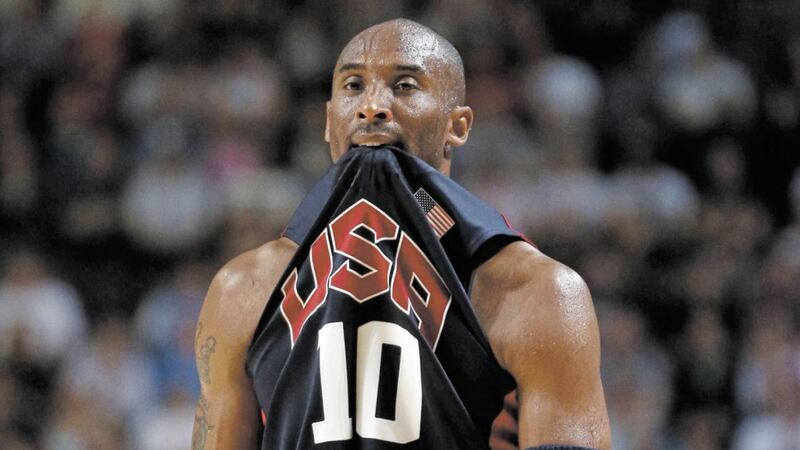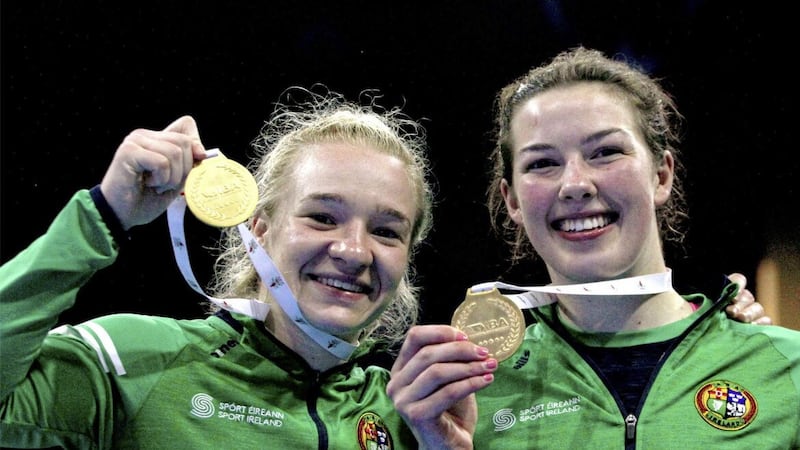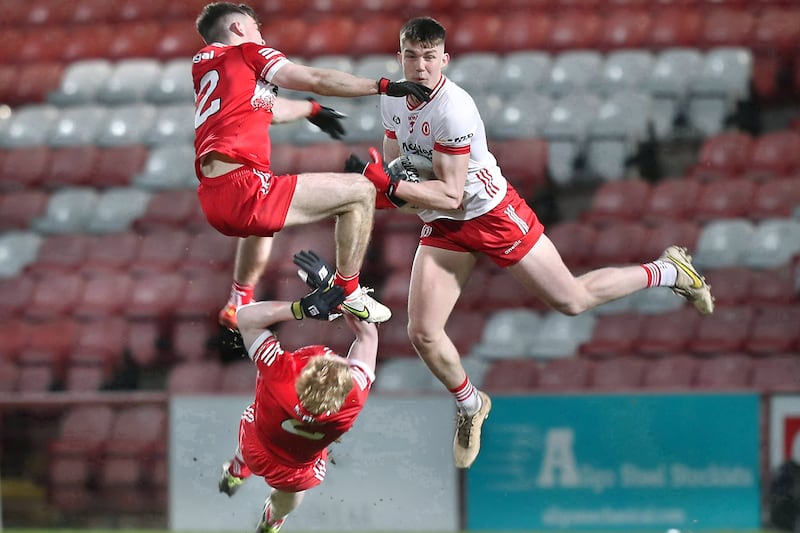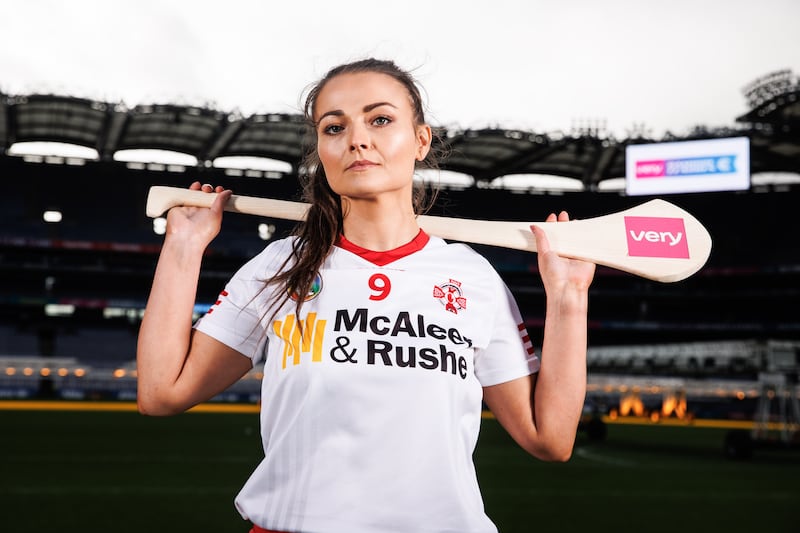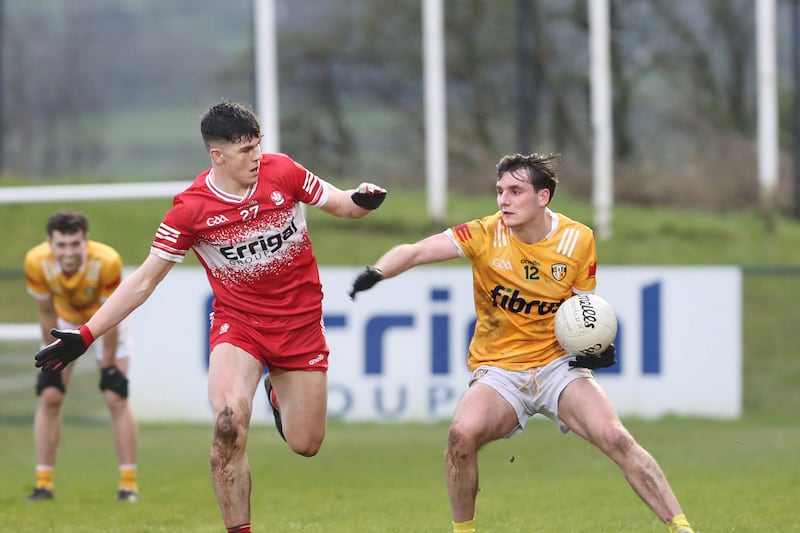WITH the ever-growing demands of modern-day sports on both kids and adults, is there any benefit in being a dual-player or a multi-disciplined athlete?
Although gaelic football has been my go-to sport for over 30 years I am a firm believer that being given the opportunity to play a variety of sports growing up has helped me to develop my skill-set and strengthen my abilities.
I was taught skills and techniques from a young age that I could transfer across sports and use to my advantage when playing football.
I would consider myself fairly good at winning a high ball and I would always have been sent in for a hop-ball no matter where I was on the field.
It wasn’t that I was any taller or stronger than the next man, but was more to do with the skills I had acquired over my early years playing basketball for my school and against my brother Sean in the back yard.
A simple basketball skill we were taught is how to “box” an opponent out; making yourself big, getting in front of the opponent and not letting them near the basket.
This came in really handy in gaelic for kick-outs, jump balls and in game-play when trying to win a 50/50 ball.
It meant I could use my body well, I may have looked more like Bambi than Kobe Bryant but the basic skill-set was hidden in there somewhere.
You can tell the players who have a basketball background, Kieran Donaghy in GAA, in soccer Paul Pogba is notably good at protecting the ball and using his body to manoeuvre an opposing player out of the way.
During basketball training we were taught skills based on the importance of reaching in for the ball and knocking it away from an opponent.
This is a skill so easily transferred and so useful in the modern GAA game, especially since the introduction of the black card.
Someone who has not played basketball before tends to leave in a “lazy arm” when trying to tackle.
In basketball you are taught to move your feet and shift your body before making the tackle, the importance of having the right body position is vital before you commit yourself.
A lot of gaelic coaches don’t coach this and it is why I believe why Dublin having a basketball coach in their set-up has made them so efficient in their tackling.
I remember playing Dublin in Omagh a few years ago and normally I would be able to ride a tackle and get past, but I remember running towards the Dublin lads, they switched their body position to almost a side-on position, they waited until the right moment and timed a perfect tackle, knocking the ball away from me.
I remember watching that clip back and thinking it was a pure basketball skill and had been executed to perfection.
I was never a self-proclaimed decent soccer player, but I do see it in other lads and the crossover skills are evident in those players.
Soccer players are coached differently and focus a lot on their twisting, turning and ability to change direction quickly, again this is something we are only catching up on in gaelic games.
You can tell a soccer player when he wins a ball and has the ability to spin a man or twist and turn him inside out, it is not that he is any “fitter” than the man running with him, but he has been coached the finer skills on how to shift his body at a rapid pace.
Jonny Davis tried to introduce this with Tyrone last year but these things take time as it is retraining both your body on how to move but also your mindset to get away from ‘what we have always done.’
We hear of youth players playing for three or four different football teams, training five nights or more per week and wondering why they are exhausted.
A huge factor in soccer, and professional sport in general, is recovery.
Being close friends with Niall McGinn, we would to compare our experiences of training.
A glaring difference that stood out for me was the recovery.
The professional sportspeople don’t have to go to work or study after a gruelling session but instead have the time and resource to focus on the recovery side of the game; ice baths, compression boots, sleep, nutrition, swimming pool after training, etc.
This is starting to come into gaelic, more so the last few years, as in my early days it was all work hard and train harder.
The importance has now shifted to working smarter not harder, taking your recovery when you need to.
In my last few years with Tyrone, Mickey Harte was preaching to lads to take nights off, it seemed lads had become addicted to training/gym-work.
I think the county scene is following the soccer/rugby mentality and finally realising the importance of rest and recovery for optimum performance.
It is so important that sportspeople, especially at a young age, don’t get too obsessed with training all the time and keep that love for the sport so they enjoy the game rather than seeing it as a chore or a regime.
There is a lot to be said for encouraging kids to play all sports, encourage them to give basketball, rugby or soccer a go, as there are lots of transferable skills which they will be able to apply across the board.
Work hard but be very conscious of the importance of recovery; to have any longevity in any sport we have to be careful not to get burned out or worse, fall out of love with it.
